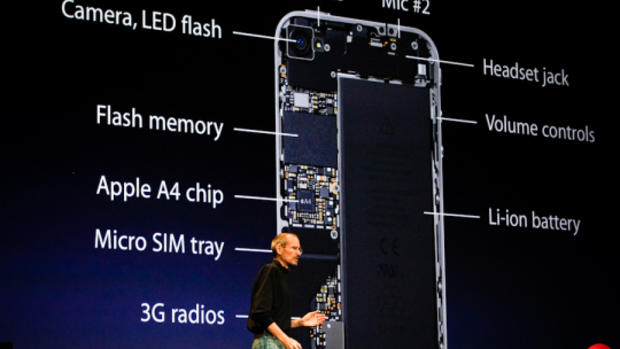On Eve of iPhone 4, Apple Resentment on Display
Former Lotus Development founder-turned-technology investor (and Internet free-speech advocate) Mitch Kapor offers the money quote for the end of an interesting New York Times piece chronicling Apple's emergence as a tech industry superpower. Or should that be increasingly-hated tech industry superpower?
"The amount of resentment is very, very large," Kapor told The Times., He added that it was "reminiscent of the kind of resentment there was toward Microsoft when it was the platform an app developer had to be on."Reading that I had to scratch my head. I remember the "kind of resentment" other companies, large and small, once felt toward Microsoft. Back when Bill Gates lorded it over the rest of the computer industry, he really lorded it. Nowadays, Gates ione of the world's most charitable philanthropists but then, he struck contempt and fear in the hearts of rivals and partners. Contempt because he oversaw a company that raked in billions despite turning out products that were usually of middling quality. And fear because he ran a company that had no compunctions about throwing its elbows around to get its way. That hard-edged way of doing business finally became the subject of a drawn-out antitrust battle with the United States Department of Justice.
But any discussion of the unease many of Steve Jobs' contemporaries apparently feel toward Apple has to be qualified. There's an obvious difference. Microsoft's run as Numero Uno coincided with the dominance of the client-server model of computing, where the company's DOS and then Windows operating systems were must-have components. Without the OS, all you owned was an inert piece of plastic and metal. So companies paid Bill Gates his royalties and did their grumbling far away from the microphones. That king was just too powerful to annoy.
In our increasingly Internet-centric Apple doesn't command that kind of dominance - yet. The company is expanding in different directions and commands an increasingly large ecosystem of developers. Andrew Gavil, an antitrust expert and professor of law at Howard University quoted in the Times piece asks whether Apple's become so powerful in any of the markets it competes in to affect competition. Then he answers his own question in the affirmative.
That's a mouthful. No doubt Apple can act willfully. The recent controversy stemming from its decision to exclude Google and AdMob from selling ads on the iPhone 4 being a case in point. Apple has its own advertising system for mobile phones and decided to bar its rival. That's also the kind of bully-boy tactic which is pure catnip for federal regulators. (The Federal Trade Commission is already investigating Apple's decision to block certain third-party programming tools from the iPad, including Adobe's Flash.) However, this remains a world away from the forced dependence on Windows which characterized the tech business in the 1980s and 1990s.
Where will all this lead? The Times piece is just the latest reminder that Apple isn't likely to win any popularity contests with its peers. (It's another story with Apple's rabidly loyal fan base.) Still, let's remember that boorish behavior is not against the law. And even when prosecutors think they have clinching evidence, it's still a tough sell.
I sat in Judge Thomas Penfield Jackson's court house for months in the late 1990s, listening as the great David Boies skillfully made the 's case to convict Microsoft as a predatory monopolist. It was great theater but the mountains of documentation which get submitted as evidence often wind up deciding antitrust cases. And that's what happened when Microsoft reversed most of the charges against it on appeal.
On the heels of its successful iPad debut - Apple sold 3 million iPads less than three months after the device went on sale - the company is set to start selling the iPhone 4 on Thursday. Based on the overwhelming pre-orders, Apple likely has another a mega-hit on its hands. All of which is likely to further stir the envy and concerns of rivals watching this former upstart morph into the new Goliath.

